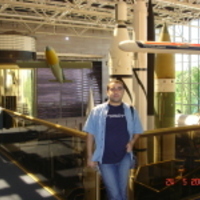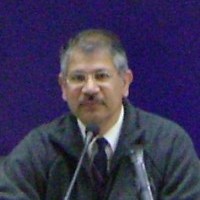Pre-Prints by Shironica P . Karunanayaka

Distance Education
The adoption of open educational practices (OEP) requires a shift in our perceptions and practice... more The adoption of open educational practices (OEP) requires a shift in our perceptions and practices about learning and teaching towards a more participatory, creative and a sharing culture. Such shifts are best achieved and sustained through carefully designed learning experiences that involve people in reflecting on authentic problems and situations. The impact of this kind of capacity building around OEP are difficult to ascertain because they are an outcome of a combination of factors involving the practitioners themselves, their educational context, as well as their views about intellectual property, its ownership and its role in educational development. Getting a clear estimate of the impacts of this kind of capacity building requires a multiplicity of evidence. This paper discusses impacts of innovative design strategies adopted in four MOOCs on shifting mindsets of practitioners towards OEP.
Journal Articles by Shironica P . Karunanayaka

Distance Education, 2020
ABSTRACT
Interest in the adoption of open educational practices (OEP) is growing, and the stro... more ABSTRACT
Interest in the adoption of open educational practices (OEP) is growing, and the strongest arguments in its favor are that the adoption of such practices has the best chances of making education affordable and accessible to all. However, engagement with such practices requires the adoption of a fundamentally different set of beliefs and value systems about the role of education and educational resources in the development of societies. The development of these beliefs and values are achievable through a combination of strategies. These include appropriate policies, as well as capacity building through sustained engagement in carefully designed learning experiences, which involves people reflecting on authentic problems and situations around the adoption of OEP. The impacts of such capacity building are difficult to ascertain because they are an outcome of a combination of factors involving the practitioners themselves, their educational context, as well as their views about intellectual property, its ownership, and role in educational development. This article discusses our approach to shifting the mindsets of practitioners around OEP and ascertaining its impacts on them.
You can download a free e-print of the full paper from the following link!
https://www.tandfonline.com/eprint/EN8A4JBNXMB8PSKBVD7W/full?target=10.1080/01587919.2020.1757406

Journal of Learning for Development (JL4D), 2020
The Commonwealth Digital Education Leadership Training in Action (C-DELTA) programme provides a f... more The Commonwealth Digital Education Leadership Training in Action (C-DELTA) programme provides a framework for fostering digital education for lifelong learning by developing digital education leaders. The Faculty of Education at the Open University of Sri Lanka implemented an action research project to promote the adoption of C-DELTA among teachers and students of secondary schools in Sri Lanka, and evaluate its impact on the teaching-learning process. A group of 41 teachers participated in the intervention and implemented C-DELTA in their schools. A variety of data were collected throughout the process via questionnaires, concept maps, focus group interviews, implementation reports, and log records in the C-DELTA platform. Findings revealed that despite challenges, such as inadequate ICT facilities, time constraints and limitation in English language competencies, the adoption of C-DELTA has supported improving digital literacy, enacting changes in thinking and digital behaviour among teachers and students, and enhancing teachers' digital education leadership skills.
The International Review of Research in Open and Distributed Learning (IRRODL), 2018
Abeywardena, I.S., Karunanayaka, S. P., Nkwenti, M.N., Tlad, L. (2018) A Bottom-up Approach to OE... more Abeywardena, I.S., Karunanayaka, S. P., Nkwenti, M.N., Tlad, L. (2018) A Bottom-up Approach to OER Policy and Guidelines Development in the Commonwealth: The Case of Botswana, Cameroon and Sri Lanka. The International Review of Research in Open and Distributed Learning (IRRODL), 19 (2) DOI: http://dx.doi.org/10.19173/irrodl.v19i2.3415
Open Praxis, 2018
Karunanayaka, S. P., Naidu, S., Rajendra, J.C.N., & Ariadurai, S.A. (2018) Designing Continuing P... more Karunanayaka, S. P., Naidu, S., Rajendra, J.C.N., & Ariadurai, S.A. (2018) Designing Continuing Professional Development MOOCs to promote the adoption of OER and OEP. Open Praxis 10 (2), 179-190 DOI: http://dx.doi.org/10.5944/openpraxis.10.2.826
Distance Education, 2018
Karunanayaka, S. P., & Naidu, S. (2018) Designing Capacity Building of Educators in Open Educatio... more Karunanayaka, S. P., & Naidu, S. (2018) Designing Capacity Building of Educators in Open Educational Resources Integration Leads to Transformational Change. Distance Education. 39:1, 87-109, DOI: http://dx.doi.org/10.1080/01587919.2017.1413933
AAOU Journal, 2017
Karunanayaka, S. P. & Naidu, S. (2017). A design-based approach to support and nurture open educa... more Karunanayaka, S. P. & Naidu, S. (2017). A design-based approach to support and nurture open educational practices. AAOU Journal, 12(1), pp. 1-20. doi: https://doi.org/10.1108/AAOUJ-01-2017-0010
OUSL Journal (Editorial), 2017
Karunanayaka, S.P., (2017). Discourses at the Intersections of Disciplinary Knowledge, Pedagogy a... more Karunanayaka, S.P., (2017). Discourses at the Intersections of Disciplinary Knowledge, Pedagogy and Technology. (Editorial) OUSL Journal. 12(1), pp.1–4. doi: http://doi.org/10.4038/ouslj.v12i1.7392
Journal of Learning for Development (JL4D), 2017
Karunanayaka, S. P., Naidu, S., Rajendra, J., & Ratnayake, H. (2017). Designing reflective practi... more Karunanayaka, S. P., Naidu, S., Rajendra, J., & Ratnayake, H. (2017). Designing reflective practice in the context of OER-based eLearning. Journal of Learning for Development, 4(2), 143-160 Retrieved from http://www.jl4d.org/index.php/ejl4d/article/view/210
AAOU Journal, 2016
Karunanayaka, S. P., Rajendra, J.C.N. & Ratnayake, H.U.W., Naidu, S. (2016). Peer-facilitated dis... more Karunanayaka, S. P., Rajendra, J.C.N. & Ratnayake, H.U.W., Naidu, S. (2016). Peer-facilitated discussions to enhance OER-based eLearning. AAOU Journal, 11(1), 1-16 DOI 10.1108/AAOUJ-07-2016-0022 Retrieved from http://www.emeraldinsight.com/doi/full/10.1108/AAOUJ-07-2016-0022
Asian Association of Open Universities Journal, 2008
Asian Association of Open Universities Journal, 2013
INTI International Journal Special Issue on Teaching and Learning, 2007
Indian Journal of Open Learning, 2007
Karunanayaka, S., Lekamge, D., Gunawardena, C., Naidu, S., & Menon, M. (2007), Professional devel... more Karunanayaka, S., Lekamge, D., Gunawardena, C., Naidu, S., & Menon, M. (2007), Professional development of teacher educators with collaborative learning designs and networking. Indian Journal of Open Learning, 16(2), 101-112. Retrieved from http://journal.ignouonline.ac.in/iojp/index.php/IJOL/article/view/442
Journal of the National Science Foundation, 2006

Indian Journal of Open Learning (IJOL), 2000
The communication revolution has stimulated teacher education institutions in many countries in t... more The communication revolution has stimulated teacher education institutions in many countries in the world to integrate modern technology such as the Internet into their programmes. However, just transferring traditional textbased materials to the web is often counterproductive. This paper focuses on the experiences of twelve Sri Lankan teacher educators as they developed Internet-based study materials, while undergoing specialised postgraduate training at the University of Wollongong, Australia. As experienced teacher educators, yet novices to the Internet, each of them developed a web study guide, targeting Sri Lankan teacher trainees. The study analysed the ways in which the educators transformed information, the design patterns adopted, and the issues they faced. Initially the effects of limited knowledge and skills upon the development of instructional materials that made use of this new technology resulted in the development of limited educational strategies. However, as the experience levels rose, the design of learning experiences became more inventive but more time was needed to influence the way the teachers thought about their learning and the learning of their students.
Book Chapters by Shironica P . Karunanayaka
Perspectives on distance education: Educational media in Asia, 2005
Finding Your Online Voice: Stories Told by Experienced Online Educators , 2007
Naidu, S., Menon, M., Gunawardena, C., Lekamge, D., & Karunanayaka, S, (2007). How can scenario-b... more Naidu, S., Menon, M., Gunawardena, C., Lekamge, D., & Karunanayaka, S, (2007). How can scenario-based learning engender and promote reflective practice in online and distance education. In M. Spector (Eds.), Finding Your Online Voice: Stories Told by Experienced Online Educators (53-72), NJ: Lawrence Pp. 53-72 http://www.loc.gov/catdir/enhancements/fy0668/2006027752-t.html











Uploads
Pre-Prints by Shironica P . Karunanayaka
Journal Articles by Shironica P . Karunanayaka
Interest in the adoption of open educational practices (OEP) is growing, and the strongest arguments in its favor are that the adoption of such practices has the best chances of making education affordable and accessible to all. However, engagement with such practices requires the adoption of a fundamentally different set of beliefs and value systems about the role of education and educational resources in the development of societies. The development of these beliefs and values are achievable through a combination of strategies. These include appropriate policies, as well as capacity building through sustained engagement in carefully designed learning experiences, which involves people reflecting on authentic problems and situations around the adoption of OEP. The impacts of such capacity building are difficult to ascertain because they are an outcome of a combination of factors involving the practitioners themselves, their educational context, as well as their views about intellectual property, its ownership, and role in educational development. This article discusses our approach to shifting the mindsets of practitioners around OEP and ascertaining its impacts on them.
You can download a free e-print of the full paper from the following link!
https://www.tandfonline.com/eprint/EN8A4JBNXMB8PSKBVD7W/full?target=10.1080/01587919.2020.1757406
Book Chapters by Shironica P . Karunanayaka
Interest in the adoption of open educational practices (OEP) is growing, and the strongest arguments in its favor are that the adoption of such practices has the best chances of making education affordable and accessible to all. However, engagement with such practices requires the adoption of a fundamentally different set of beliefs and value systems about the role of education and educational resources in the development of societies. The development of these beliefs and values are achievable through a combination of strategies. These include appropriate policies, as well as capacity building through sustained engagement in carefully designed learning experiences, which involves people reflecting on authentic problems and situations around the adoption of OEP. The impacts of such capacity building are difficult to ascertain because they are an outcome of a combination of factors involving the practitioners themselves, their educational context, as well as their views about intellectual property, its ownership, and role in educational development. This article discusses our approach to shifting the mindsets of practitioners around OEP and ascertaining its impacts on them.
You can download a free e-print of the full paper from the following link!
https://www.tandfonline.com/eprint/EN8A4JBNXMB8PSKBVD7W/full?target=10.1080/01587919.2020.1757406
http://publicationshare.com/pdfs/Pathways_to_OEP_eBook.pdf